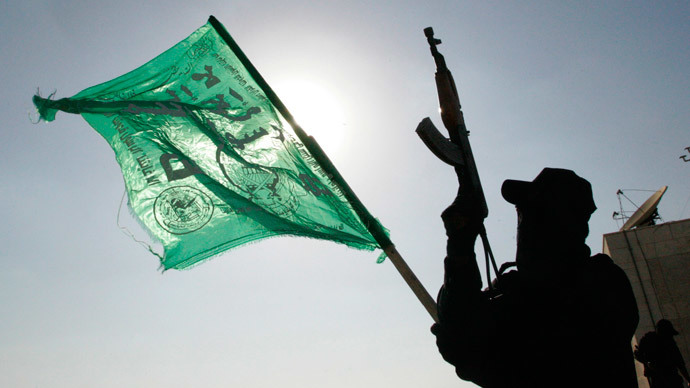Gaza Strip – The militant group Hamas has turned its attention to settling blood disputes caused by internal armed fighting with Fatah in the Gaza Strip in 2007.
In June 2007, one of the history changing unrest took place when Hamas took over the Gaza Strip. Being a military escalation, the battle is considered a climax in the Fatah–Hamas struggle for power.
Hamas fighters took control of the Gaza Strip using coercive force to oust Fatah.
The unrest resulted in the dissolution of the unity government and the de facto division of the Palestinian territories into two entities, the West Bank governed by the Palestinian Authority, and Gaza governed by Hamas.
After the 2007 conflict, which left some 300 Palestinians dead, the Gaza Strip began witnessing organized political movement of families and tribes of Hamas-slain victims who swore revenge.
For years-on revenge and schism rhetoric flooded the public, especially on the annual date marking the Gaza takeover.
Commemorative posters picturing members killed in the 2007 conflict have long occupied Fatah platforms in Gaza. Not only was the Palestinian Authority the one to hold close to people it lost, but Hamas also followed suit with condemning and convicting Fatah perpetrators involved in the blood spill of its party supporters.
At a time when the two sides have failed to come together on political and administrative policies, Hamas has begun to reach out for a community-based agreement, a decade after taking over the coastal strip.
For the Muslim majority area, Hamas brokered some sort of reconciliation with the families of Fatah victims, offering them Diya, Islam’s version of financial compensation.
Diya in Islamic law is the financial compensation paid to the victim or heirs of a victim in the cases of murder, bodily harm or property damage. It is an alternative punishment to qisas (equal retaliation).
Some families agreed to receive the payment and ended their quest for retaliation, others did not respond, and three refused to settle the matter completely, sources told Asharq Al-Awsat newspaper.
Refusal was largely influenced by the families’ insistence for equivocal retribution, qisas.
Sources also mentioned the Fatah families snubbing the efforts to settle the controversy due to the absence of the Palestinian Authority, their political representation, from Hamas-ruled Gaza.
Ex-Fatah politician Mohammed Dahlan is the mediator negotiating reconciliation efforts over the matter.
